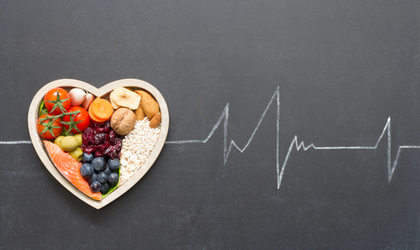
We all have our vices (hey, we’re only human!). Some, however, are healthier than others. Sadly, guzzling cups of coffee, drinking to excess, and smoking doesn’t make the cut. While these habits conspire to hijack many areas of health, the heart has a particularly strong disdain for them.
Caffeine
For most of us, sipping the sweet, tangy notes of a cuppa joe marks the start of a fresh, new day. Besides its rich aroma and velvety taste, coffee is famed for its energising properties quite simply because it’s loaded with many people’s poison of choice: caffeine. Caffeine is often mentioned in the discussions surrounding heart health as it raises the blood levels of epinephrine, also known as adrenaline. This chemical temporarily increases the force of the heart, mildly elevates heart rate, and spikes blood pressure.
How many cups?
It’s generally agreed that drinking a moderate amount of tea or coffee (four or five cups a day) should be fine for the heart. But not all of us can stomach the java. Some people are more sensitive to caffeine and may experience heart palpitations. If this is the case, best avoid the brews altogether. Be mindful caffeine is also found in tea, green tea, energy drinks, coke cola, and dark chocolate.
Did you know?
There’s 125-150mg of caffeine in your standard latte with a double-shot espresso.
Alcohol
Paradoxically, we often use alcohol to toast to long-term health. While the occasional glass of red wine may offer some cardiovascular benefits, drinking to excess is anything but a nod to your overall wellbeing. Indeed, regularly consuming over the recommended alcohol guidelines can lead to an elevated heart rate, weakened heart muscle, irregular heartbeat, and high blood pressure – all of which heighten the risk of a cardiac event.
Focus on moderation
Now, you might be wondering: can I have my beer and drink it, too? In short: yes. But the take-home message is moderation, as well as avoiding excessive and binge drinking. How much is deemed moderate? In an ideal world, no more than one drink a day. The NHS guidelines advise against drinking more than 14 units a week. And if you’re drinking habitually, try to spread your consumption over 3 or more days. Remember, you should have several drink-free days a week, too.
Smoking
Make no mistake about it: stubbing out smoking is the single best thing you can do for your heart. Because it elevates heart rate, causes an irregular heart rhythm, and tightens major arteries, research consistently demonstrates the relationship between smoking and heart and circulatory diseases. Shockingly, smokers are almost twice as likely to have a heart attack compared to those who have never smoked. And that’s not all. This habit also raises blood pressure, which increases the risk of stroke.
Put it out!
-
Make a promise, set a date, and stick to it
-
Think positively, even if you’ve tried to quit before
-
A craving can last 5 minutes; make a list of 5-minute strategies to distract you
-
Change your drink – alcohol, coffee, and fizzy drinks make cigarettes taste better
-
Focus on relaxation and self-care; smoking is often triggered by stress
-
Treat yourself using the money you would ordinarily spend on cigarettes
-
Get moving; exercise helps to produce anti-craving chemicals
-
Make non-smoking friends
Related Posts

Keri
Keri Filtness has worked in the Nutrition Industry for 19 years. She is regularly called upon for her professional comments on health and nutrition related news. Her opinions have been featured by BBC3, Prima, Vitality, The Mirror, Woman’s Own and Cycling Weekly, amongst others. She has also worked one to one with journalists, analysing their diets and health concerns and recommending changes and additions, where appropriate.
View More



